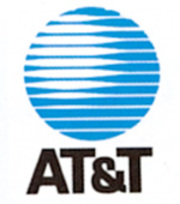One interesting fact, told on CNBC this morning, is that while most people are very pessimistic about the current economy most think things will get better in the next year or so.
They will. That’s because the present trends are pretty easy to reverse, and once reversed should stay that way. Simply placing a priority on the War Against Oil should enable U.S. demand to fall fairly dramatically. Insulation, grid improvements, and smaller cars driven somewhat less will force oil prices down in the fairly near term, if we are serious about it.
The same is true for the other big economic problem we have, the one no one really talks about. The telecom duopoly. Throughout this decade, just as the Bush Junta has given oil producers a stranglehold over our economy, so he has allowed telecom monopolists to be given the same stranglehold. This was done deliberately, to gain more control over the American people. With "one throat to choke" it’s easy to get your demands for data satisfied, assuming you pay the bills. So a policy of fewer Internet providers was in the authoritarians’ best interest.
It has been good for the telecoms’. As I’ve noted here many times, the price of "broadband" has remained stable for a decade, and its definition has not stretched one bit. This despite the improvements in equipment and technology of Moore’s Law — we now have efficient fiber switches, and fibers which can handle hundreds of streams of data at once.
The new way the monopolists seek to screw us is with bandwidth "caps," which have come into effect on all the major networks — Comcast, Cox, and AT&T, in amazingly short order. This is indeed designed, as Om Malik notes, to force you into keeping your cable TV. While the nominal cost of cable broadband is $50/month it’s only available with a viewing package in most areas, and that can come to $80/month or more, even if you’re not using pay per view or a service like HBO. The phone company does the same thing. Their broadband also costs $50/month, but they nick you for another $50 (or more) for the phone line, and then add a long distance plan.
The result is that Americans are now paying about $120-150/month for 1.5 Mbps downloads which can only get video clips, while Europeans and Asians pay a fraction of that for lines which can do far more. Innovation is being throttled. It’s hard to telecommute on such slow lines, especially if you’re in a business where the movement of large files is commonplace. So winning the war against the telecom duopoly is a component in winning the War Against Oil.
Now, here’s how we win it.
Google appeared to give up on the fight earlier this year, when it let
Verizon buy the TV spectrum auction’s nationwide block. But as Pete
Ianace noted recently at AlwaysOn, looks can be deceiving.
Consider. Verizon has been saddled with an enormous bill for spectrum,
thanks to Google’s FUD. It must charge a premium price for services on
that spectrum, given the price.
So what does Google do? For $500 million it bails out Sprint and
Clearwire, enabling the build-out of a huge WiMax network using
spectrum space very close to that of WiFi, around 2.5 GHz. Since costs
are lower prices can be lower. Since Google is getting the cable
operators as partners (they don’t own a piece of the wireless business)
it can gain a national footprint, deep into many neighborhoods, in
relatively short order. (The cable operators have the right to use
telephone poles for their cable, so adding WiMax to those systems is
neither difficult nor expensive.)
The result is competition, plus new applications built by Google, and
perhaps some Google branding. And given the precarious financial
position of Verizon, especially after it buys the spectrum, it will
take just a little push to knock the duopolists out. When those
companies go to the government for help it will likely be in the hands
of a new Administration that is not nearly so friendly to their
interests as the current one.
Concessions will then be called for. Allow wholesaling of your wired
capacity by third parties. Open up your wireless frequencies to open
competition. Suddenly prices fall, terms change, and innovation
returns.
It would have been foolish for Google to start down this path earlier
in the Bush years. The telecoms would have been able to stop it in
Washington. Google doesn’t pay enough to Washington to be heard by the
Bush people, and it’s unwilling to be evil in the sense the Bush people
define as patriotic.
So change is coming. Not now, but soon.












